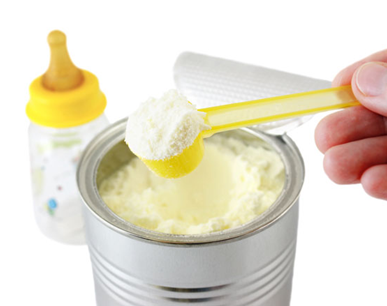A Thai Cabinet resolution aimed at curtailing the marketing and promotion of infant formula and other breast milk substitute products in all medical and health care facilities “is a commendable and critical step towards ensuring the best start in life for all children in Thailand,” UNICEF and WHO said today.
The Cabinet’s resolution, approved on Tuesday, endorses proposed measures by the Ministry of Public Health to seek cooperation from all medical and health care facilities to monitor and control the marketing and promotion of breast milk substitutes for infants and young children.

The resolution states that all medical and health care facilities should not:
- Support or permit promotion and marketing activities on the use of breast milk substitutes and related products, including bottles and teats. Product displays and other promotional materials are also not allowed, except for materials that have been pre-approved.
- Demonstrate or allow demonstrations on the use of breast milk substitutes and related products by manufacturers, importers or distributors.
- Receive donations or any other support related to breast milk substitute products, including items bearing company names or logos that symbolize such products.
The resolution also calls upon medical and health care personnel to “protect, support and promote breastfeeding”, and to not represent manufacturers, importers and distributors of breast milk substitutes and related products.
The promotion and marketing of breast milk substitute products in health facilities is a clear violation of the International Code of Breast-milk substitutes, which was adopted in 1981 by the World Health Assembly in response to widespread concern over the vulnerability of infants and the risks posed by inappropriate feeding practices, including the unnecessary and improper use of breast milk substitutes.
Scientific studies have shown that the use of breast milk substitutes can result in increased neonatal and child mortality, poorer growth and nutritional status, and lower scores on cognitive development and intelligence tests. Artificial feeding also interferes with bonding between the baby and the mother, and an increased risk of later chronic diseases, including heart disease, diabetes, some cancers and obesity. In addition, powdered infant formulas are not sterile products and they can become easily contaminated. Since 2000, there have been more than 70 recalls of infant formulas, mainly in industrialised countries.
A joint statement by the UNICEF and WHO Representative in Thailand, Bijaya Rajbhandari and Dr. Maureen Birmingham, said: “The unethical marketing and promotion of infant formula and other breastfeeding substitute products in health facilities has served to undermine breastfeeding in Thailand. This resolution by the Cabinet, which should help put a stop to these practices, is a commendable and critical step towards ensuring the best start in life for all children in Thailand.”
The World Health Assembly recommends that children be exclusively breastfed for the first six months of life to ensure optimum health and development. Recent Ministry of Public Health data shows that only about 15 per cent of mothers in Thailand exclusively breastfeed for that period, while a large-scale survey in 2007 by the National Statistical Office found that about 15 per cent of babies had never been breastfed.
“Exclusive breastfeeding is clearly the gold standard for children in terms of ensuring their health and optimum future development,” Rajbhandari said. “Every mother should be encouraged and supported to breastfeed for as long as she can.”
“There have been, and there continue to be, numerous violations in Thailand of the International Code of Marketing of Breast-milk Substitutes,” Dr. Birmingham said. “Thailand needs legislation that will help ensure mothers are not being misinformed about the benefits of artificial infant feeding or about its potential dangers.”
WHO’s Dr. Birmingham notes that Thailand now needs to pursue effective regulation of the marketing of breastfeeding substitutes and related products to mothers both within and outside of health facilities.
Source:
Mark Thomas, Chief of Communication, UNICEF Thailand, mthomas@unicef.org
Pornthida Padthong, Communication Officer, UNICEF Thailand, ppadthong@unicef.org
Nathaporn Wanijjapiwong, WHO Thailand, , wanijjapiwongn@searo.who.int
Photo source:
http://www.inhabitots.com/baby-formula-contaminated-with-aluminum-40-times-more-than-breast-milk/
